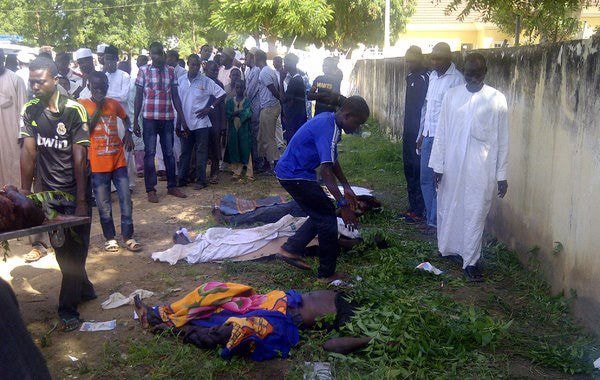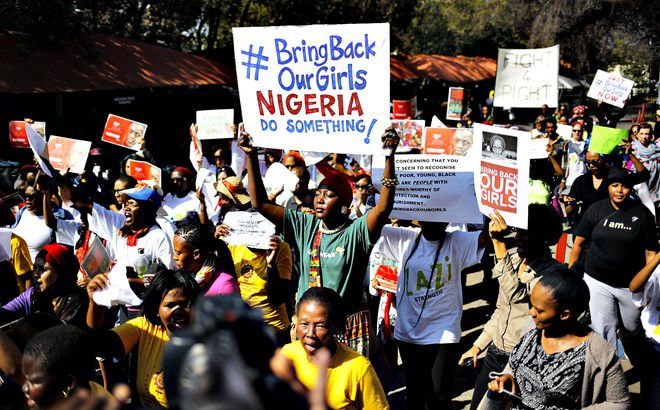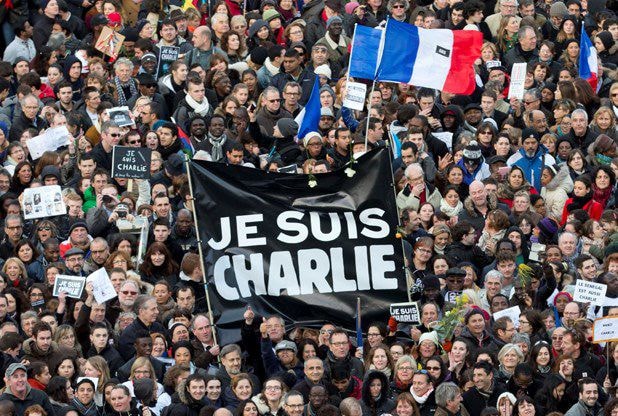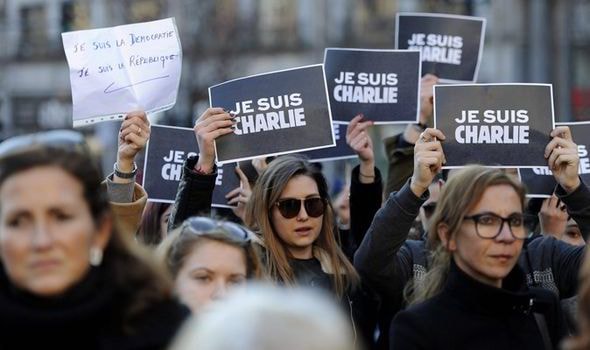Media - Paris massacre and 2,000 lives in Nigeria
While the world focuses on the massacre in Paris, which left 12 people dead, the attacks that killed more than 2,000 people in Nigeria are being forgotten by the world media.
| RELATED NEWS |
|---|
According to Sputnik, information related to the attack on the Charlie Hebdo magazine office and a supermarket in France from January 7 to 10 seems to have completely overshadowed the horrific massacre in the northern Nigerian city of Baga, which claimed the lives of more than 2,000 people by Boko Haram Islamist gunmen.
 |
| Students killed after an attack on an agricultural college in Gujba, Nigeria by Boko Haram gunmen. |
Boko Haram is an Islamic militant group that was founded and operates as a terrorist organization in Nigeria. With an anti-Western ideology, Boko Haram rebels often demonstrate their power through kidnappings, murders, and bombings of schools and churches. Boko Haram even wants to establish an Islamic State in Nigeria. The increasingly complex and daring development of the Boko Haram Islamic force has had a negative impact on Nigeria's security system.
Forgotten more than 2,000 lives
The "bias" in reporting information about terrorist attacks between countries has sparked debate in the media about the "weight" of information streams.
The first factor to mention is the media coverage system. Meanwhile, Paris is a global city, where there are thousands of reporters and cameras constantly monitoring, any information changes can be easily transmitted and updated at any time.
Baga, on the other hand, is just a remote town in northeastern Nigeria. Unlike Paris, Baga is an unstable and dangerous area for journalists. Because Boko Haram Islamist gunmen are completely free to act and attack at any time in Baga. Meanwhile, the Nigerian army is still trying to fight to regain control of this area.
Even the Israeli newspaper Haaretz once called on the world to share greater sympathy with the victims of terrorist attacks in Nigeria. However, in reality, even the "Bring Back Our Girls" campaign launched by Nigeria has completely failed. This campaign was launched after the incident on the night of April 14, 2014, more than 270 schoolgirls at Chibok school in northeastern Nigeria were kidnapped by Boko Haram gunmen.
 |
| The "Bring Back Our Girls" campaign was launched in Nigeria after Boko Haram gunmen kidnapped more than 270 schoolgirls. |
Despite receiving military aid from the United States, the Nigerian government has been unable to address the problems related to the terrorist group Boko Haram. One of the reasons for the Nigerian government’s inability is the state of corruption and human rights violations in the country.
Criticism of the Nigerian government has been repeatedly raised in editorials by the Guardian, with many Nigerians saying the government has been less than forthcoming in reporting on the massacres.
The Sydney Morning Herald also reported that the Nigerian President sent condolences to the victims of the attack on the Charlie Hebdo newspaper in Paris but did not mention the Nigerian citizens who died at the hands of the terrorist organization Boko Haram.
Political motives
However, it is not fair to blame the Nigerian government for its failure to draw international attention to the problems it faces. The difference between bringing up the Paris massacre and Nigeria is related to one very important factor: political motivation.
 |
| Parisians gathered to march after the massacre at the Charlie Hebdo magazine office on January 7. |
As CNN noted, focusing on the attack on the Charlie Hebdo newspaper office and the march demonstrating the spirit of national unity helped President Hollande regain his political advantage. Because before the attack, Mr. Hollande only received 13% of the people's support. In addition, it also had the effect of "dethroning" the influence of French politician Marine Le Pen, President of the far-right "National Front" (FN) party, which has xenophobic ideology. Because the FN party only focused on a unified nation and forgot the disagreements within French society. This is the leading reason why extremist gunmen organized attacks.
Unlike France, Nigeria is facing the problem of how to suppress the Islamic terrorist group Boko Haram. According to the Wall Street Journal, anti-Islamic ideology is forming strongly under the leadership of current President Goodluck Jonathan because he is a Christian.
However, the world media's neglect of the tragedy in Nigeria and the threat from Boko Haram remains reprehensible. After witnessing the international support and national unity in France following the terrorist attack on January 7, Archbishop Ignatius Kaigama of the Diocese of Jos in Nigeria told BBC World Service that "we need to replicate this idea of unity. It should not only appear when there is an attack in Europe but not in Nigeria, Niger or Cameroon".
The impact of social media
The final issue to consider when discussing media bias is the pervasiveness of social media. According to CNN, the French “Je suis Charlie” (I am Charlie) campaign has helped connect people around the world and made it easy for them to follow events on their mobile phones or tablets.
In contrast, remote towns in Nigeria do not have access to the internet via mobile phones. As a result, the campaign, called “BringBackOurGirls,” has been known as a disappointment. The kidnapped girls have not been rescued and are now in the hands of Boko Haram.
 |
| The "Je Suis Charlie" campaign has received the attention of many people and politicians around the world. Photo: AP |
In short, the barriers to journalists' access to information and the absence of social media networks have caused the massacre that claimed the lives of more than 2,000 people in Nigeria to be completely overshadowed by the attack on the Charlie Hebdo newspaper in Paris.
The massive coverage of the Paris attacks has won France in general support and deep sympathy from the world, while the Hollande administration in particular has gained an advantage in domestic public opinion over the opposition. Meanwhile, the lack of information about the chaos and violence in Nigeria has led many to believe that this is a war that serves the Nigerian President's own interests.
According to Infonet






